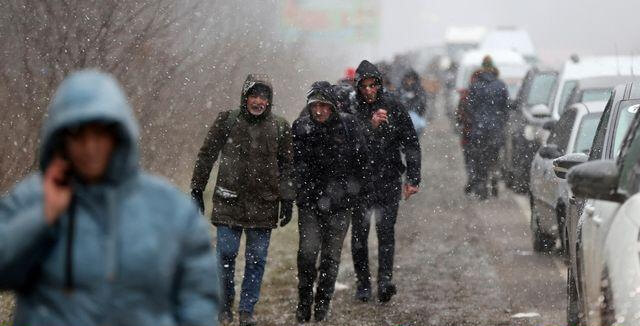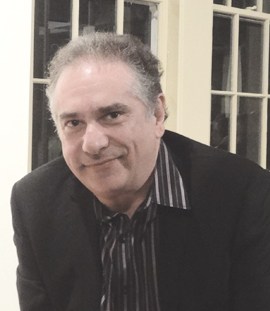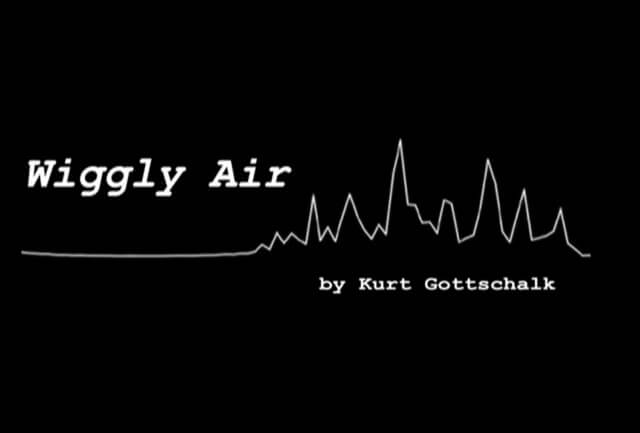I’ve lived in the United States all my life. But both my parents were from a part of the world that has been hugely in the news since the end of February. They came here from Czechoslovakia after World War 2, pretty much as refugees, my dad as soon as he could, my mom waited for her visa and just barely got out in 1948 as the Soviets were coming in.
Both had suffered in German prisoner camps during the war. As all this happened before I came into existence, as a kid I didn’t think much about it. My world was similar to that of Beaver Cleaver, a happy childhood growing up in the America of the 1950’s. My parents worked hard to give my sister and I that kind of idyllic youth.
But as I got older I began trying to understand what kind of world they had lived though.
My dad used to watch a program called “The Twentieth Century,” narrated by the great newscaster Walter Cronkite. As he spent all of WW 2 in Europe, as a European, he was especially interested in the war from the American perspective.
To get an idea of what I am talking about, look for Cronkite’s 20th Century program about the Battle of the Bulge. You see amazing footage of soldiers in tanks, firing from the snow – in tanks, both Germans and Americans.
You kind of get an idea of what’s going on today in the Ukraine, only in black and white. You see regular people trying to escape the battles—in those days using oxcarts instead of suitcases and backpacks—you see buildings being blown up, soldiers lying dead on snowbanks off to the side of the road—all horrible things that to me was something from a primitive past, although in reality less than twenty years prior.
My parents made sure I stayed out of Vietnam by sending me to college, and I worked just hard enough to keep from flunking out and receiving a 1A draft status.
All I knew was that war was bad, and primitive. I tended to the pacifist side of things, the Noam Chomsky side of things, and felt terrible at times to be an American, as we spent unbelievable amounts of money each year maintaining a huge military. It’s true that most of that military was meant to serve as the world’s peacekeeper. But I focused on the excursion we took in places like Mozambique, or Panama, or Nicaragua – either in proxy wars with the Soviet Union, or actual fighting against much smaller country’s, basically for dumb political reasons, such as boosting a president’s popularity polling. In the process destroying and even ending lives of people just as important to the world as us, although many of us didn’t really understand that.
In those days I would sometimes look at the world from the viewpoint of the Soviets, to try and figure out the Cold War. I read lots of books about the 20th century wars, the Russian Revolution, Karl Marx. I eventually enrolled at the New School in a Master’s program in International Studies. All in trying to figure out history.
One thing I could never understand, and grew to hate, was the ending of the Cold War. All my life, the Soviet Union was the big enemy. All of a sudden, it’s over, the Berlin Wall is smushed, my parent’s original country and all their neighbors get to be truly independent and vote for their own leaders, and have a free press – not to mention Prague gets to be a hot place to hang out in, but after all those years as a huge enemy, we paid lip service to the Russians and the Yeltsin government. I remember thinking that we needed some sort of Marshall Plan for them—a people that lived under kind of a weird economic system for their whole lives—in order to ease them into our kind of world where you could do more of what you liked to do, but in return, you wouldn’t be guaranteed some sort of education, some sort of healthcare, and some sort of place to live.
Instead, we sent them economist/professor Jeffrey Sachs, who was famous (or infamous) for his ‘shock therapy’ economic theory which stated that ” In economics, shock therapy is the sudden release of price and currency controls (economic liberalization), withdrawal of state subsidies, and immediate trade liberalization within a country, usually also including large-scale privatization of previously public-owned assets (Wikipedia).”
While I pretty much appreciated the Bill Clinton presidency, to me this was a huge mistake. The typical Russian had no idea how to live in such a society, people lost their life savings as the value of the ruble completely crashed.
Every citizen was given shares of the former state-owned companies, but it was the former elites in the Communist Party who were smart enough to buy up the shares from the impoverished public, at bargain basement prices, turning the former wealthy party members into newly enriched oligarchs.
Alcoholism and suicides grew at astronomical rates, and life expectancy plummeted. By the end of the decade, the country pretty much threw Yeltsin out and welcomed Vladimir Putin, ex KGB agent, who promised something better.
It should have been us to promise a “something better beginning” (to quote the Kinks’ Ray Davies), but Americans pretty much forgot about our former ‘enemy’ as soon as they weren’t really an enemy anymore.
Putin of course is still in power, and actually still pretty popular, as Russians were given a better living standard along with more freedoms.
But Putin always had a second track, which has culminated in a repetition of some of the horrors of WW 2. Today we get to see them in color instead of black and white–but it’s the same thing–tanks, missiles, guns, schools, homes and residences blown apart and on fire, and regular people, in this case wearing the same kinds of clothes and eating the same kinds of snacks as we do, kids with the same toys that we have, desperately fleeing on bus, car, train and even on foot (haven’t seen any news reports of oxcarts though).
What comes to my mind, having read history, is Hitler’s invasion of his European neighbors, most notably Poland. While the world looked on, Nazis and then Russia invaded Poland in 1939, for phony reasons. Nobody did much to help them out, despite treaties that Poland had with France and England.
I thought about Poland as Russia began amassing a huge army outside of the Ukraine, but I never really thought that they would invade. Thankfully, despite the fact that Ukraine has no military alliances, countries like ours have spent years (especially since the Crimean invasion) training and equipping the Ukrainian army.
Hopefully this will all end well, but just like the beginning of Covid, there is huge uncertainty about the future now.
About the most political thing I will say at this point is thank God that we have somebody in the White House who knows what he’s doing (as opposed to the last occupant).
Author
-

George Fiala has worked in radio, newspapers and direct marketing his whole life, except for when he was a vendor at Shea Stadium, pizza and cheesesteak maker in Lancaster, PA, and an occasional comic book dealer. He studied English and drinking in college, international relations at the New School, and in his spare time plays drums and fixes pinball machines.
View all posts
George Fiala has worked in radio, newspapers and direct marketing his whole life, except for when he was a vendor at Shea Stadium, pizza and cheesesteak maker in Lancaster, PA, and an occasional comic book dealer. He studied English and drinking in college, international relations at the New School, and in his spare time plays drums and fixes pinball machines.
Discover more from Red Hook Star-Revue
Subscribe to get the latest posts sent to your email.











